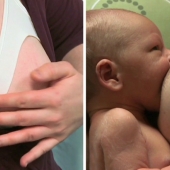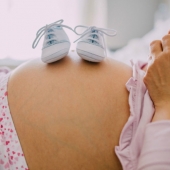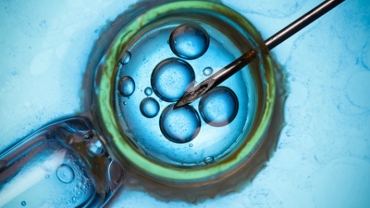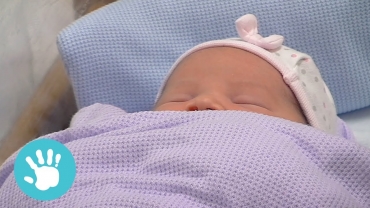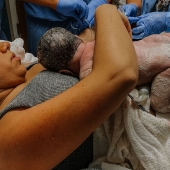After your delivery, you may feel some discomfort in certain areas of your body. This is very common. Within a few hours after birth, you may feel some stinging the first few times you use the bathroom. If you had an episiotomy or tear, there may be some swelling and soreness around your vaginal area.
For a few days, you may also feel your uterus contract, which is sometimes called afterbirth pains, and are often most strong when you breastfeed.
Whatever discomforts you may feel, your nurse will describe to you what is called a care map – a guide to help manage your pain, take care of yourself, and get to know your baby during your hospital stay.
You are the only person who can describe your pain, but your health care team will work with you on ways to rate your pain – so that your providers know how best to help you feel better. The important thing is to be consistent in how you rate your pain, so that your health care team will know how best to treat you.
Your health care team will tell you about different types of medicine that may be right for you. But there are many other ways you can control some of the discomforts you are feeling. Mothers who take an active role in their own healing often recover more quickly.
If you had an episiotomy or tear, ice packs on your vaginal area may help to ease the pain. If it stings when you urinate, it is sometimes helpful to use the bottle provided to squirt warm water onto your vaginal area, which reduces the discomfort.
If you have cramps in your stomach area, using a heat pack can help. Wrap the pack in a towel to protect your skin. Walking is a great way to reduce the aches and pains you may be feeling.
Just like during labor, breathing the essential oils in aromatherapy can also help reduce anxiety, ease your pain, and make you feel better. And taking a warm bath or shower can help soothe your muscles and make you feel refreshed.
Although there are many types of pain relief available to you, it is very important to tell your nurse if your pain relief is not working, or if you feel any new pain. Your health care team wants to help you feel better and recover as soon as possible.
One of the best ways to help ease your own discomfort is by rooming- in with your new baby – keeping your baby with you as much as possible while you recover at the hospital.
It is during this time that your health care team will help you with breastfeeding, as well as ways to help ease the discomfort that breastfeeding sometimes causes.
Rooming-in is safe for healthy babies and their mothers. Babies who room-in with mothers often: feed better, cry less, and lose less weight.
While you are awake, you can hold your baby while lying in bed or sitting in a chair. When you sleep, your partner can hold the baby, or the baby can sleep in a crib.
Mothers who room-in with their babies: sleep much better than mothers who do not room-in – and getting better rest helps them recover more quickly; feel less discomfort because their focus is on their babies; and develop greater confidence in their ability to care for their babies.
As you recover in the hospital, your health care providers want to be sure of several things, including:
- You can walk around by yourself
- You know how to take care of yourself and your baby
- You are not bleeding too much, and if you have stitches, they have begun to heal
- You do not have a fever, and you can manage your pain
- Your baby has had at least two successful feedings, and has had both wet and soiled diapers
The time it takes for all of this to happen is different for each mother and baby. Your health care team will partner with you to follow your care map and meet all of these requirements. Once you do, you may return home with your baby.
- 2289 views

